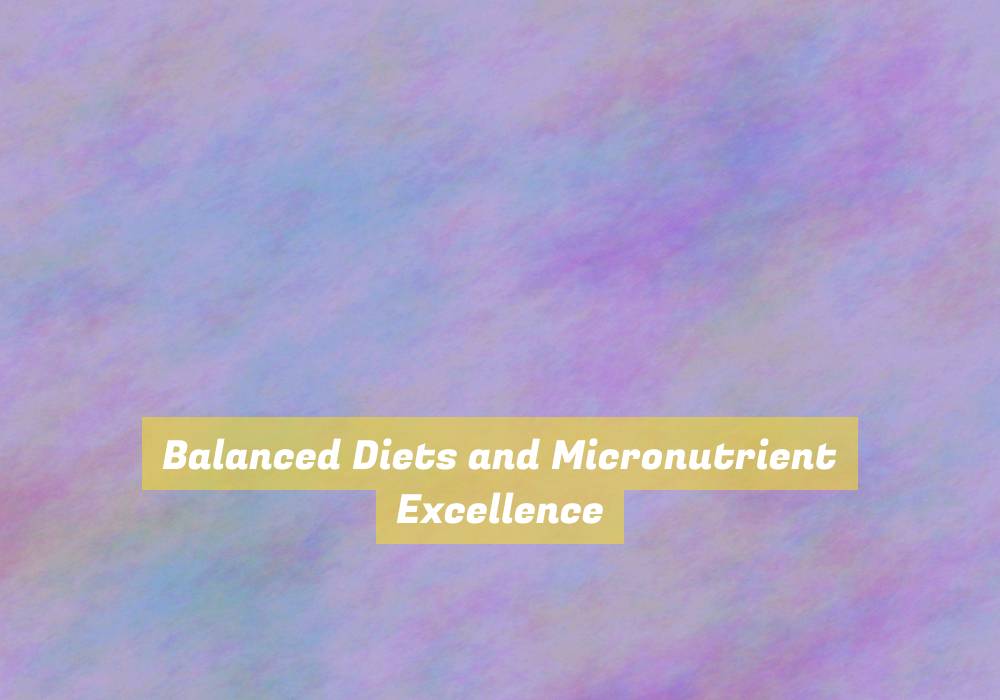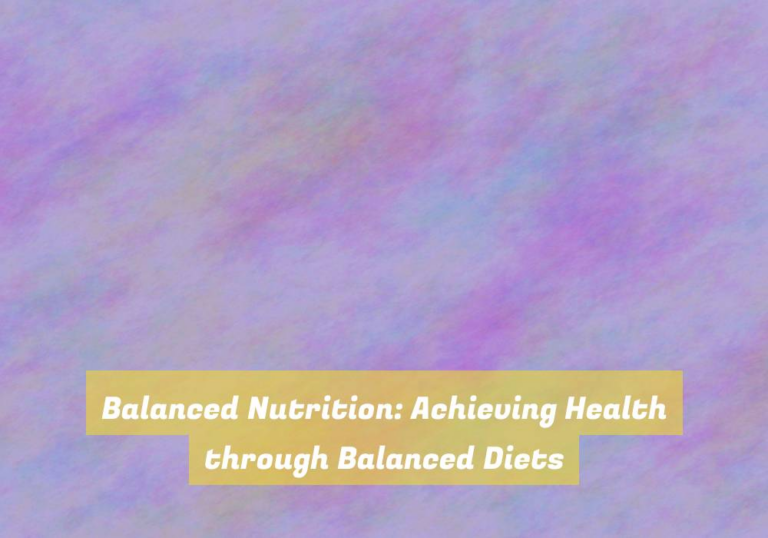Balanced Diets and Micronutrient Excellence
YouG??ve probably heard the saying G??you are what you eat,G?? and when it comes to your health, this couldnG??t be more accurate. Achieving a balanced diet and micronutrient excellence is crucial for overall well-being, but itG??s not always easy to know where to start.
Understanding the role of micronutrients in your health and the key ones your body needs is essential for making informed choices about your diet. But how exactly do you ensure youG??re getting all the micronutrients you need?
Stick around to uncover the strategies for maintaining a balanced diet and achieving micronutrient excellence through your everyday food choices.
The Role of Micronutrients in Health
Micronutrients play a crucial role in maintaining your overall health and well-being. These essential nutrients, including vitamins and minerals, are required by your body in small amounts but are vital for various physiological functions.
For instance, vitamin A supports healthy vision, vitamin D aids calcium absorption for strong bones, and iron is essential for oxygen transport in the blood. Without an adequate intake of micronutrients, you may experience deficiencies that can lead to fatigue, impaired immune function, and other health issues.
ItG??s important to consume a diverse range of foods to ensure you get an ample supply of micronutrients. Fruits, vegetables, whole grains, lean proteins, and dairy products are all rich sources of these essential nutrients. Incorporating a variety of colorful fruits and vegetables into your diet can provide a spectrum of vitamins and minerals necessary for optimal health.
In addition to promoting overall well-being, micronutrients also play a role in disease prevention. For example, antioxidants such as vitamin C and E can help protect your cells from damage caused by free radicals, potentially reducing the risk of chronic diseases.
Key Micronutrients for Optimal Health
To achieve optimal health, prioritize a diet rich in key micronutrients that support various physiological functions and promote overall well-being. Some of the essential micronutrients include vitamins A, C, D, E, and K, as well as the B-vitamins such as thiamine, riboflavin, niacin, pantothenic acid, B6, biotin, folate, and B12.
These vitamins play crucial roles in energy metabolism, immune function, blood clotting, and maintenance of healthy vision, skin, and bones. Additionally, minerals like calcium, magnesium, potassium, iron, zinc, and selenium are vital for muscle function, nerve transmission, bone health, and antioxidant defense.
Omega-3 fatty acids, although not classified as micronutrients, are also essential for brain health, heart health, and reducing inflammation in the body.
Including a variety of nutrient-dense foods such as fruits, vegetables, whole grains, lean proteins, and healthy fats in your diet can ensure that you obtain these key micronutrients in the right amounts.
Achieving Micronutrient Excellence Through Diet
By prioritizing a diet rich in key micronutrients, you can achieve micronutrient excellence and support your overall health and well-being. Including a variety of nutrient-dense foods such as fruits, vegetables, whole grains, lean proteins, and healthy fats in your daily meals is essential.
Aim to incorporate a colorful array of fruits and vegetables into your diet to ensure a wide spectrum of vitamins and minerals. Additionally, consider adding nuts, seeds, and legumes as theyG??re packed with important micronutrients like magnesium, zinc, and vitamin E.
Furthermore, consuming fortified foods can also contribute to meeting your micronutrient needs. Many dairy alternatives, cereals, and plant-based milk products are fortified with essential vitamins and minerals such as calcium, vitamin D, and B vitamins.
However, itG??s important to be mindful of your individual nutrient requirements and consult with a healthcare professional if you have specific dietary concerns or restrictions.
Strategies for Maintaining a Balanced Diet
Considering a variety of food groups and portion control can help you maintain a balanced diet and support your overall health. Aim to include fruits, vegetables, lean proteins, whole grains, and healthy fats in your meals. Incorporating diverse food groups ensures that you receive a wide range of essential nutrients, promoting optimal health. Portion control is equally important. Be mindful of serving sizes to avoid overeating, which can lead to weight gain and potential health issues.
Another strategy for maintaining a balanced diet is meal planning. Setting aside time to plan your meals for the week can help you make healthier choices and prevent impulsive, less nutritious food decisions. Additionally, reading food labels can aid in making informed choices about the nutritional content of the products you consume. Be attentive to the serving size, calories, and the presence of essential nutrients such as fiber, vitamins, and minerals.
Furthermore, staying hydrated is crucial for overall health and can contribute to a balanced diet. Water supports digestion, nutrient absorption, and helps regulate body temperature. ItG??s essential to prioritize water consumption and limit the intake of sugary beverages.
Conclusion
In conclusion, maintaining a balanced diet that includes key micronutrients is essential for achieving micronutrient excellence and optimal health.
By prioritizing nutrient-dense foods and incorporating a variety of fruits, vegetables, lean proteins, and whole grains into your daily meals, you can ensure that your body receives the necessary micronutrients it needs to function at its best.
Remember to consult with a healthcare professional or a registered dietitian for personalized dietary recommendations.






